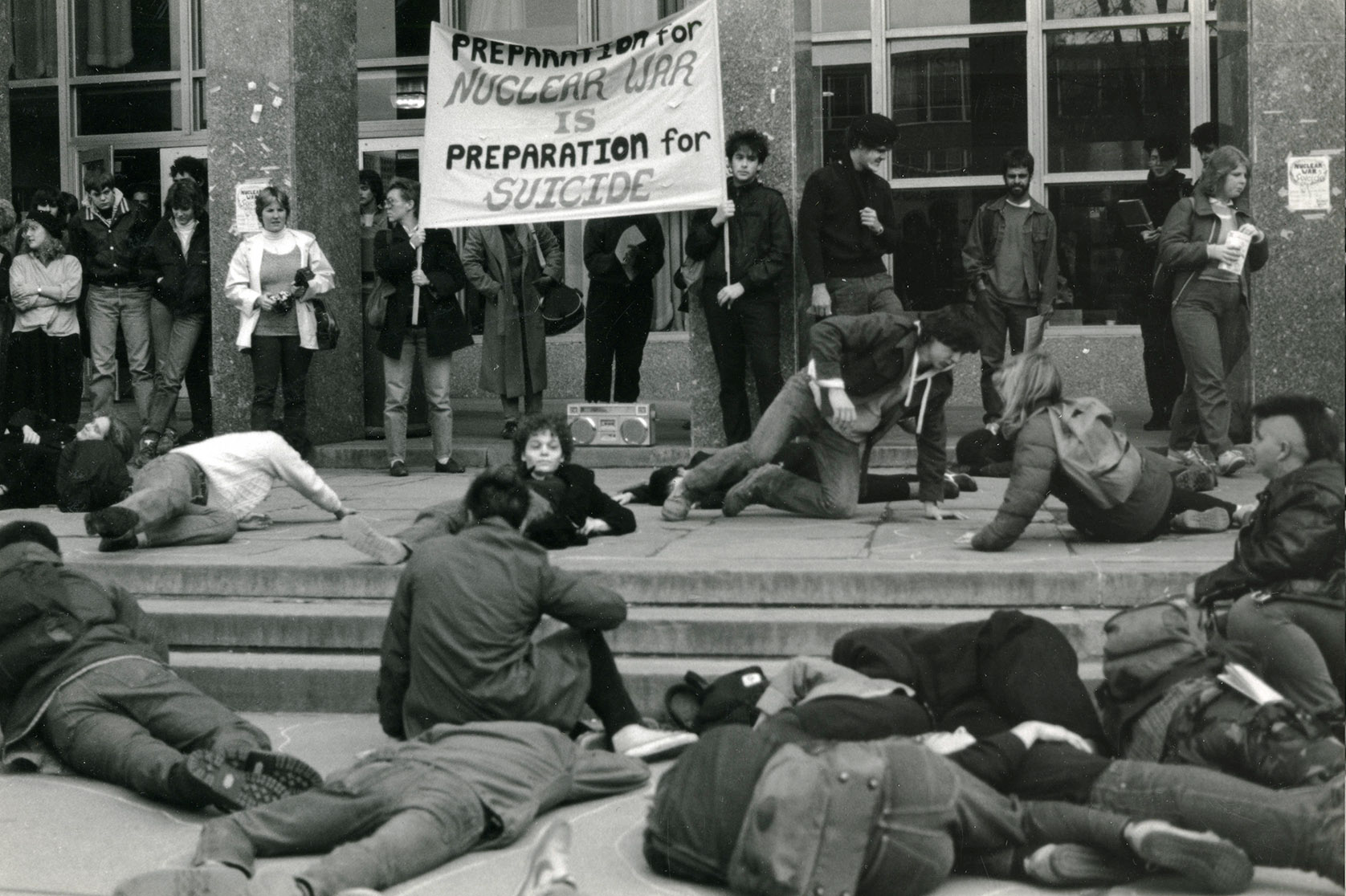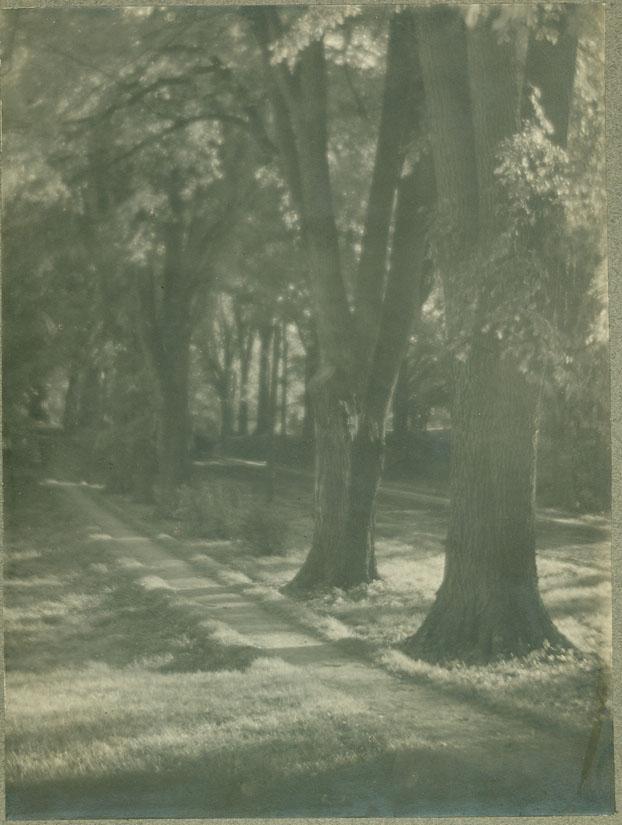Activism of the 1980s Photograph Collection

During the academic year 1986-1987, the campus at UMass Amherst was a hotbed of political protest, fueled in part by the US intervention in Central America. The arrival on campus of a CIA recruiting officer in November set off a string of demonstrations that attracted the support of activists Abbie Hoffman and Amy Carter, daughter of former president Jimmy Carter. The occupation of the Whitmore Administration Building was followed by a larger occupation of adjacent Munson Hall, resulting in a number of arrests. Hoffman, Carter, and eleven co-defendants were tried and acquitted on charges of disorderly conduct were tried in April 1987.
The Collection contains 61 mounted photographs of marches, demonstrations, and protests in Amherst and Northampton, Mass., taken by Charles F. Carroll, Byrne Guarnotta, and Libby Hubbard, all students at UMass Amherst. The photographs are a vivid record of campus and community activism, and particularly the mobilization against the CIA and American intervention in Central America, as well as the arrest and trial of Abbie Hoffman and Amy Carter.

